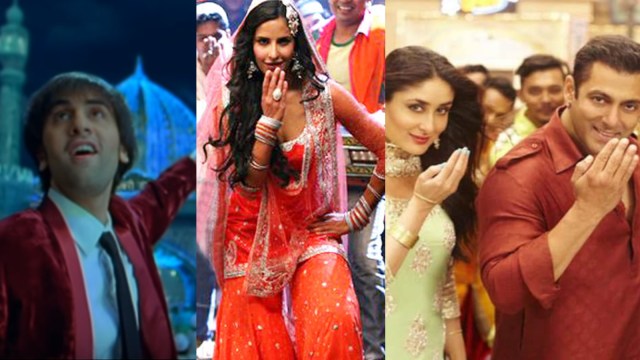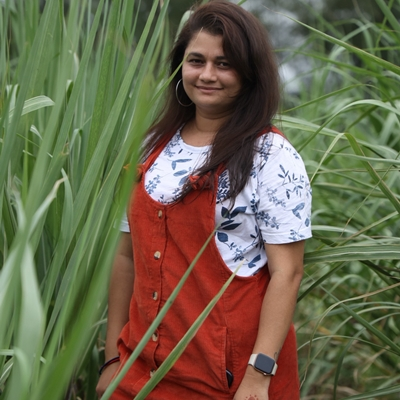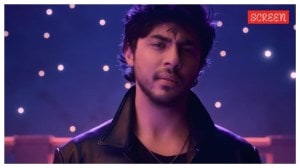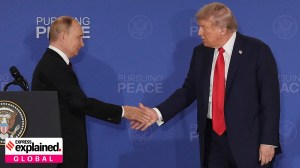As India celebrates Eid-ul-Fitr today, film lovers are flocking to theatres to watch two much-awaited films, Bade Miyan Chote Miyan and Maidaan. Eid always guarantees big-ticket releases, houseful shows and high-on-entertainment masala films, and we have Salman Khan to thank for that! The actor pioneered the trend of Eid releases with Judwaa, in 2007, and over the past two decades, several of his films such as Jan-E-Mann, Dabangg, Bodyguard, Ek Tha Tiger, Bajrangi Bhaijaan, Kick etc hit the screens on the festival. There were many hits and a few misses, but Eid releases caught stream and soon, others followed suit. But long before Eid releases, there were Eid songs that kept evolving with time. Now, they are far and few. The last one we heard, or at least remember, is “Aaj Ki Party Meri Taraf Se” from Salman’s Bajrangi Bhaijan. However, Eid songs in Bollywood deserve more recognition and credit.

Eid festivities burst onto the silver screen not just with vibrant colours and joyous celebrations, but also with a diversity of emotions beautifully woven into music. While romantic serenades for the leading lady and the protagonist’s affinity for the moon remain a staple, a closer look shows how these numbers highlight various emotions and aspects of life, from love and loss to flirting, brotherhood, friendship and the joy of food. They serve as an ode to traditional musical styles like qawwali and Sufi music and the rich traditions of the Muslim community.
Of love, loss and longing
Story continues below this ad
Sure, over time, the songs have become upbeat, metamorphosing into party numbers, but once in a while, Bollywood surprised us with songs laced with tenderness and even melancholia, albeit in a beautiful way. Take for instance, “Yoon Shabnami,” from Sanjay Leela Bhansali’s Sawariyaa, which depicts longing and pain of one-sided love. Bhansali’s signature visual flair shines through and the song, sung by Parthiv Gohil, transports viewers to a dreamlike world. The narrative revolves around Sakina (Sonam Kapoor), who eagerly awaits the return of Imaan (Salman Khan) on Eid, as he had promised. Meanwhile, Raj (Ranbir Kapoor), smitten by Sakina, decides to express his feelings through the song, knowing he is going to be loved back.
Melancholy has often been central to Eid songs in the black-and-white era where there were no opulent sets or Bhansali’s world tinted in hues of blue. A rare gem that breaks the mould is “Eid Ka Din Tere Bin Hai Pheeka” from Mere Mehboob. (1963). Unlike the usual celebratory tunes, this song encapsulates the feelings of lovers who can’t meet. Featuring Bharat Bhushan and Nimmi, and sung by Mohammad Rafi and Lata Mangeshkar, the metaphor, ‘Eid ka chand’ takes a turn, highlighting the emptiness one feels when separated from their beloved. The melody perfectly captures the yearning and longing for a lover’s presence during the festival that is meant for togetherness. Even the qawwali song, “Mujhe Mil Gaya Bahana Tere Deedar Ka” (Shama) is a bittersweet melody. Shama (Shyama), hopelessly in love with the poet Amaan (Bharat Bhushan), finds a glimmer of hope on Eid as circumstances bring them together. However, the music carries a hint of sadness, foreshadowing the heartbreak that awaits Shama as she loses her lover to Shabnam (Madubala).
From brotherhood to bromance
Story continues below this ad
The spirit of camaraderie in Eid songs is palpable, with many tunes focusing on the special bond between friends, often powered by upbeat tracks. A notable example is the lively “Wallah Re Wallah” from the film Tees Maar Khan, which features energetic dance sequences and emphasises the joy of friendship during Eid festivities with Salman and Akshay Kumar matching steps with each other to woo Katrina Kaif. But the depiction of brotherhood wasn’t always happy in these songs. Decades ago, Teesri Aankh threw a delightful curveball with “Eid Ke Din Gale Mil Le Raja.” Here, estranged brothers, Ashok (Dharmendra) and Sagar (Shatrughan Sinha), unknowingly celebrate Eid together. The song transcends the romantic narrative, focusing on the powerful bond of brotherhood. Through a heartfelt qawwali, the melody emphasises themes of reconciliation and the joy of rediscovering lost family ties.
An ode to Sufi music
AR Rahman’s https://www.youtube.com/embed/dXdD1_AGBZg?si=nFdsSIYXSVftK_HI“>“Arziyan” from Delhi-6 takes a modern approach to qawwali. The song captures the essence of Eid on the bustling streets of Delhi’s Chandni Chowk. The melody pays homage to Sufism and celebrates the vibrant Muslim culture that thrives in the heart of the city. “Shah Ka Rutba” from the film Agneepath, is both beautiful and inspiring. Performed by Sukhwinder Singh, Anand Raaj Anand, and Krishna Beura, the lyrics of the song, which is based on an Eid religious procession, wonderfully express the worship and awe that Muslims have for God. The song is more real thanks to the inclusion of traditional instruments like the dhol and harmonium
The party bangers and songs about food
Story continues below this ad
“Aaj Ki Party” from the film Bajrangi Bhaijaan sung by Mika Singh, has an upbeat tune that instantly uplifts your mood and celebrates the happiness shared during festive gatherings. Featuring Salman and Kareena Kapoor Khan, the lyrics of the song describe the joy and excitement surrounding the vibrant Eid celebration. “Baki Sab First Class Hai” from the movie Kalank, featuring the voices of Arijit Singh and Neeti Mohan is a perfect Eid party number. This song skillfully combines contemporary and traditional musical styles, and its lyrics emphasise the beauty of life and living in the moment. The gentle, melodic rhythm and Varun Dhawan’s energetic dance steps, perfectly capture the essence of festive celebrations.
“Tayyab Ali” from Once Upon A Time In Mumbaai Dobara is sung by Javed Ali. The song’s retro vibe transports you to an Eid celebration from the 1980s, providing a delightful nostalgic experience.



































